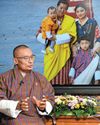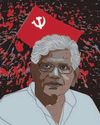
What is the difference between a zero and an all-time low? In politics, it is not as clear as in mathematics. The Bahujan Samaj Party got no seats in the Lok Sabha polls, but in vote share it went back 35 years to when it fought its first election in 1989.
The BSP, known for its stunning political performances and mystifying alliances, has been on a slow slide for a while. In the 2014 Lok Sabha elections, five years after its best ever performance of 2009 (21 seats), it fell to zero. In 2019, despite its vote share being lower than 2014, it won 10 seats. This time the party garnered around 2 per cent of the votes nationally, and 9.4 per cent in Uttar Pradesh. In 2019, it got 3.66 per cent votes nationally and 19.4 per cent votes in UP.
Nationally, though, it was not the BSP’s worst show. In 1991, it had just 1.61 per cent of the vote and three seats. And in terms of vote drop, it saw a sharper decline in 2014 (1.98 per cent).
But if this election is being dubbed the BSP’s lowest point, it is because of what it means in the larger electoral universe—the kind that matters most. In the Lok Sabha election of 2019, it won 10 seats and came second in 27, where it polled between 30 to 48 per cent of the vote. In 2024, its candidates did not come second in any constituency in the state. In the 10 seats that it had won in 2019, it stood third in nine and came fourth in one.
It repeated candidates in Amroha and Jaunpur constituencies; they both finished third. In Shravasti and Ghazipur constituencies, where its MPs defected to the SP and contested, both won, while a third defector lost as a BJP candidate in Ambedkar Nagar.
The BSP’s losses were mopped up mostly by the SP, which won six of the 10 BSP seats, while one seat each went to the Congress, the BJP, the Rashtriya Lok Dal, the Aazad Samaj Party (Kanshi Ram).
This story is from the {{IssueName}} edition of {{MagazineName}}.
Start your 7-day Magzter GOLD free trial to access thousands of curated premium stories, and 9,000+ magazines and newspapers.
Already a subscriber ? Sign In
This story is from the {{IssueName}} edition of {{MagazineName}}.
Start your 7-day Magzter GOLD free trial to access thousands of curated premium stories, and 9,000+ magazines and newspapers.
Already a subscriber? Sign In

A golden girl
One of India's most formidable beauties passed away earlier this month. The odd thing is she would absolutely hate this obituary; she hated being written about and avoided publicity for all of her nine decades. Indira Aswani was 93 when she died. But anyone who encountered her, even briefly, was in such awe of her grace and poise, and one could not but remember her forever.

The interest in wine is growing delightfully in India
The renowned British wine writer and television presenter Jancis Robinson, 74, recently came to Delhi and Mumbai to reacquaint herself with India's wine industry. This was the Robinson's fourth visit to India; the last one was seven years ago. On this trip, Robinson and her husband, restaurateur Nicholas Lander, were hosted by the Taj Hotels and Sonal Holland, India's only Master of Wine.

United in the states
Indian-Americans coming together under the Democratic umbrella could get Harris over the line in key battlegrounds

COVER DRIVE
Usage-driven motor insurance policies offer several benefits

GDP as the only measure of progress is illogical
Dasho Karma Ura, one of the world's leading happiness experts, has guided Bhutan's unique gross national happiness (GNH) project. He uses empirical data to show that money cannot buy happiness in all circumstances, rather it is family and health that have the strongest positive effect on happiness. Excerpts from an interview:

India is not a controlling big brother
Prime Minister Tshering Tobgay considers India a benevolent elder sibling as the \"big brotherly attitude\" is happily missing from bilateral ties. He thinks the relationship shared by the two countries has become a model of friendship not just for the region, but for the entire world. \"India's attitude is definitely not of a big brother who is controlling and does not allow the little brother to blossom and grow,\" says Tobgay in an exclusive interview with THE WEEK.

Comrade with no foes
Lal Salaam, Comrade Yechury-you were quite a guy!

Pinning down saffron
In her first political bout, Vinesh Phogat rides on the anti-BJP sentiment across Haryana

MAKE IN MANIPUR
Home-made rockets and weapons from across the border are escalating the conflict

SAHEB LOSES STEAM
Coalition dynamics and poor electoral prospects continue to diminish Ajit Pawar's political stock